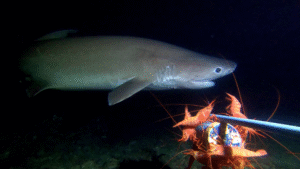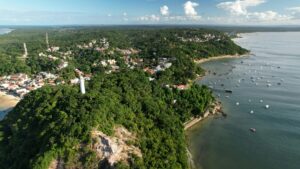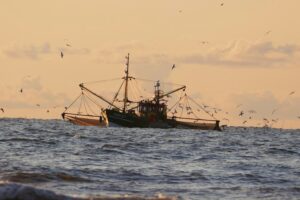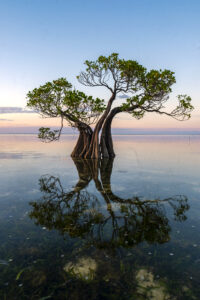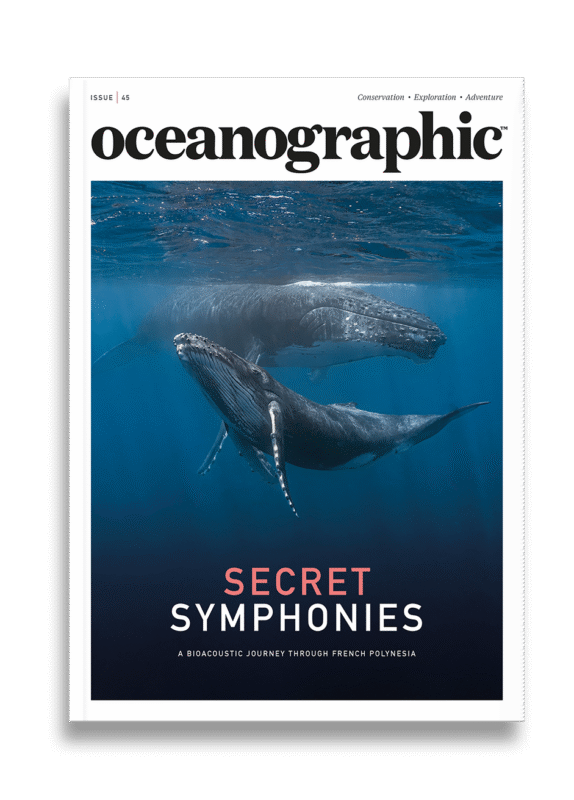200,000 fish die in "single worst jellyfish attack" on Scottish salmon
The string of pearls jellyfish (Apolemia uvaria) - also known as ‘string jellyfish’ - has struck two Scottish salmon farms resulting in a "substantial emergency harvest" and marking what is now believed to be the single worst incident involving these jellyfish on a farm in Scotland.
A jellyfish species that has been wreaking havoc on Norway’s salmon industry has arrived in Scotland, where it has killed 200,000 individual fish, causing significant environmental harm and prompting urgent action from environmental officials.
The string of pearls Jellyfish (Apolemia uvaria), also known as ‘string jellyfish’ or ‘barbed wire jellyfish’, has struck two Scottish salmon farms (one in Invertote, the other in Muck) resulting in a substantial emergency harvest and marking what is now believed to be the single worst incident involving these jellyfish on a farm in Scotland.
According to Fish Health Inspectorate data published across both sites, some 32,000 fish were killed by string jellyfish at the Invertote farm between 28 October and 3 November 2024. At Muck Fish Farm, that number reached a total of 163,232 salmon. In both cases, the remaining salmon were harvested under emergency operations.
Footage released today by the environmental investigations and campaign platform Green Britain Foundation, and captured at Invertote just two days before the jellyfish attack was officially detected and declared, shows tonnes of salmon of varying sizes being removed from the site. The incident is the latest in a string of events, claims the group, to highlight failure among the Scottish salmon farming industry to cope with environmental changes.
String jellyfish are notorious for unleashing a devastating assault on salmon by using their venomous tentacles to inflict burns on the fish’s skin, eyes, and gills. Trapped in pens – described by the campaign group as often “densely packed” – the salmon are unable to escape the stings, leaving them with severe wounds and in “immense stress”.
Injuries such as these render the salmon highly vulnerable to infection and disease that often results in a slow and painful death if left untreated.
In a statement given to the media, the Green Britain Foundation has said the arrival of these jellyfish in Scottish waters “should sound alarm bells throughout the salmon farming industry”, especially considering the devastation in Norway.

Recent reports from Norway indicate the jellyfish threat to salmon farms is ongoing and potentially increasing. In late October 2024, Norway’s regulator, the Norwegian Food Safety Authority, warned salmon farmers to prepare for jellyfish attacks and advised farmers to put measures in place to deal with the impact on their fish stocks.
The threat is substantial. Last winter, the jellyfish killed more than 3 million salmon in Norwegian farms, contributing to the nation’s highest-ever recorded mortality rate for sea-phase salmon in 2023, with over 100 million salmon and trout deaths registered.
In early November 2024, and faced with an exacerbating problem, the Norwegian Food Safety Authority urged its fish farmers to cull affected stocks.
There are growing fears that similar devastation could occur across Scotland’s salmon farm industry.
Dale Vince, founder of the Green Britain Foundation, said: “This jellyfish attack is the latest example of how the fish farming industry is failing to cope with environmental challenges. We routinely see them using the land and sea as a sewer for their toxic business, and now nature is fighting back. It’s time for real accountability and for these companies to face the consequences of their actions.”
The arrival of the jellyfish serves, the Green Britain Foundation has suggested, as a “stark warning on the inherent flaws” in open-net salmon farming and the “devastating economic and ecological consequences” it can bring. As climate change continues to disrupt marine ecosystems, these types of farms are increasingly exposed to unpredictable and catastrophic threats.
“This incident highlights the urgent need to phase out open-net farming entirely, but until then, stricter regulations and robust environmental safeguards must be enforced to prevent further damage,” said the campaign group.


"*" indicates required fields
Printed editions
Current issue
Back issues

Back Issues
Issue 43 Sir David Attenborough’s ‘Ocean’

Back Issues
Issue 41 Holdfast to the canopy
Enjoy so much more from Oceanographic Magazine by becoming a subscriber.
A range of subscription options are available.

